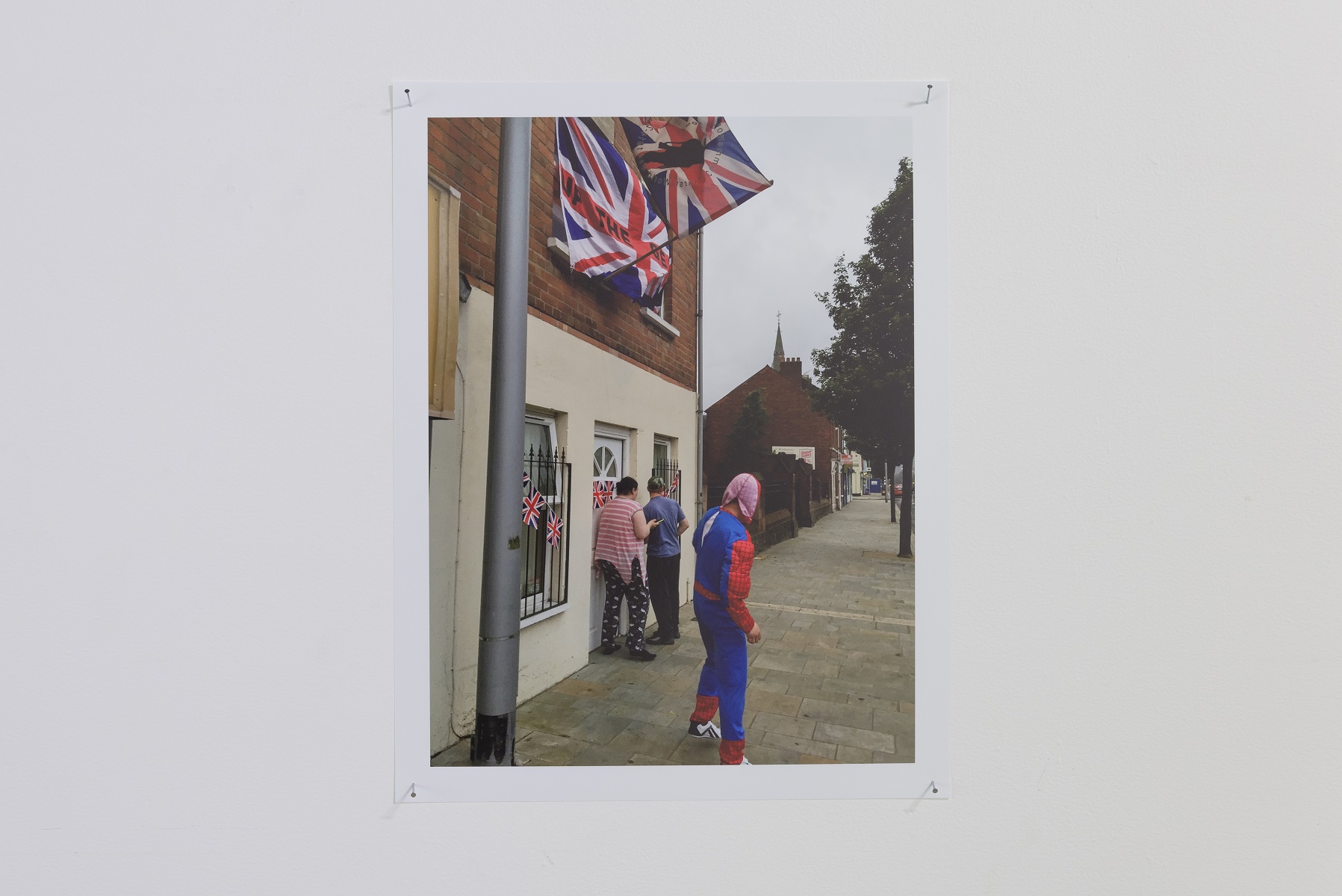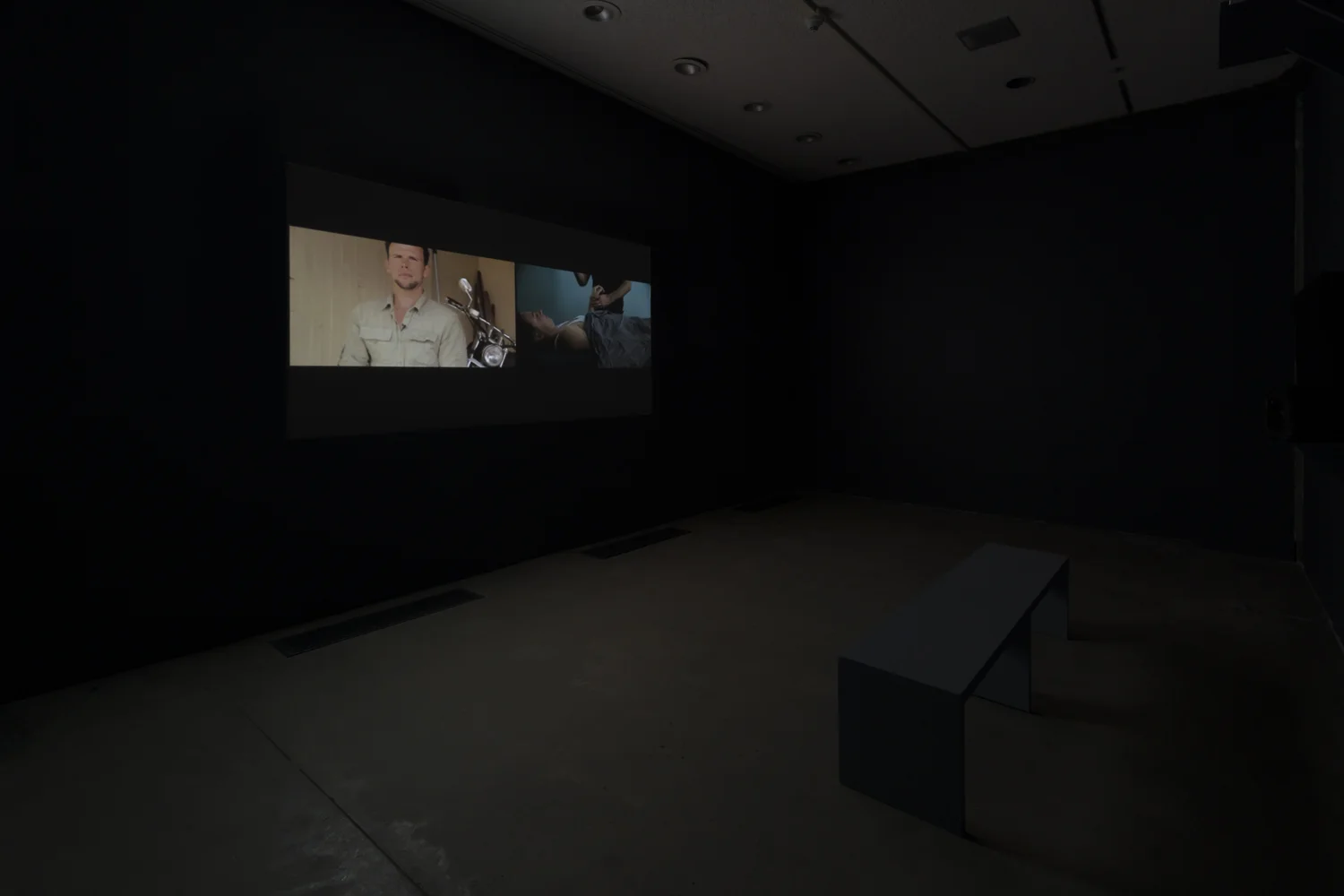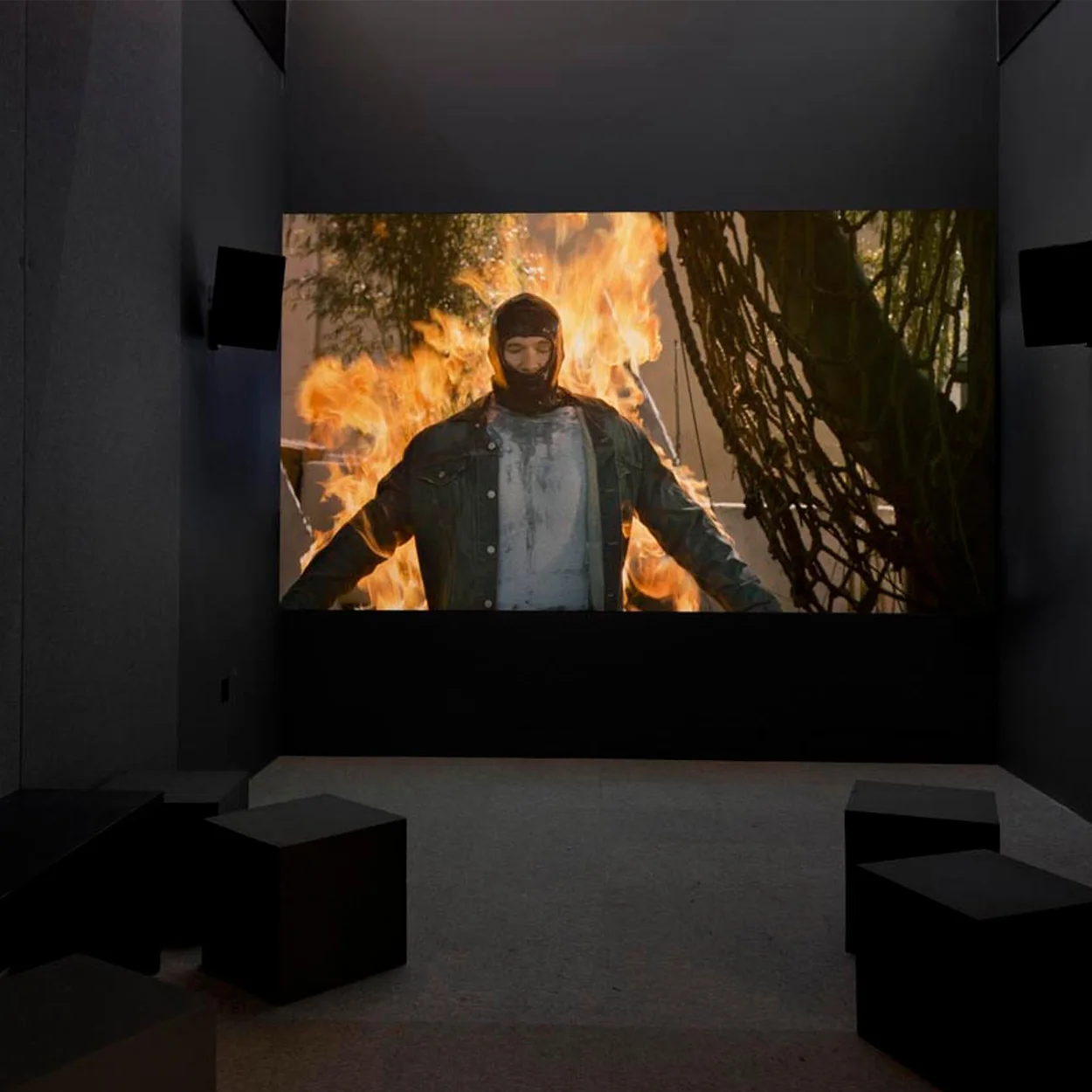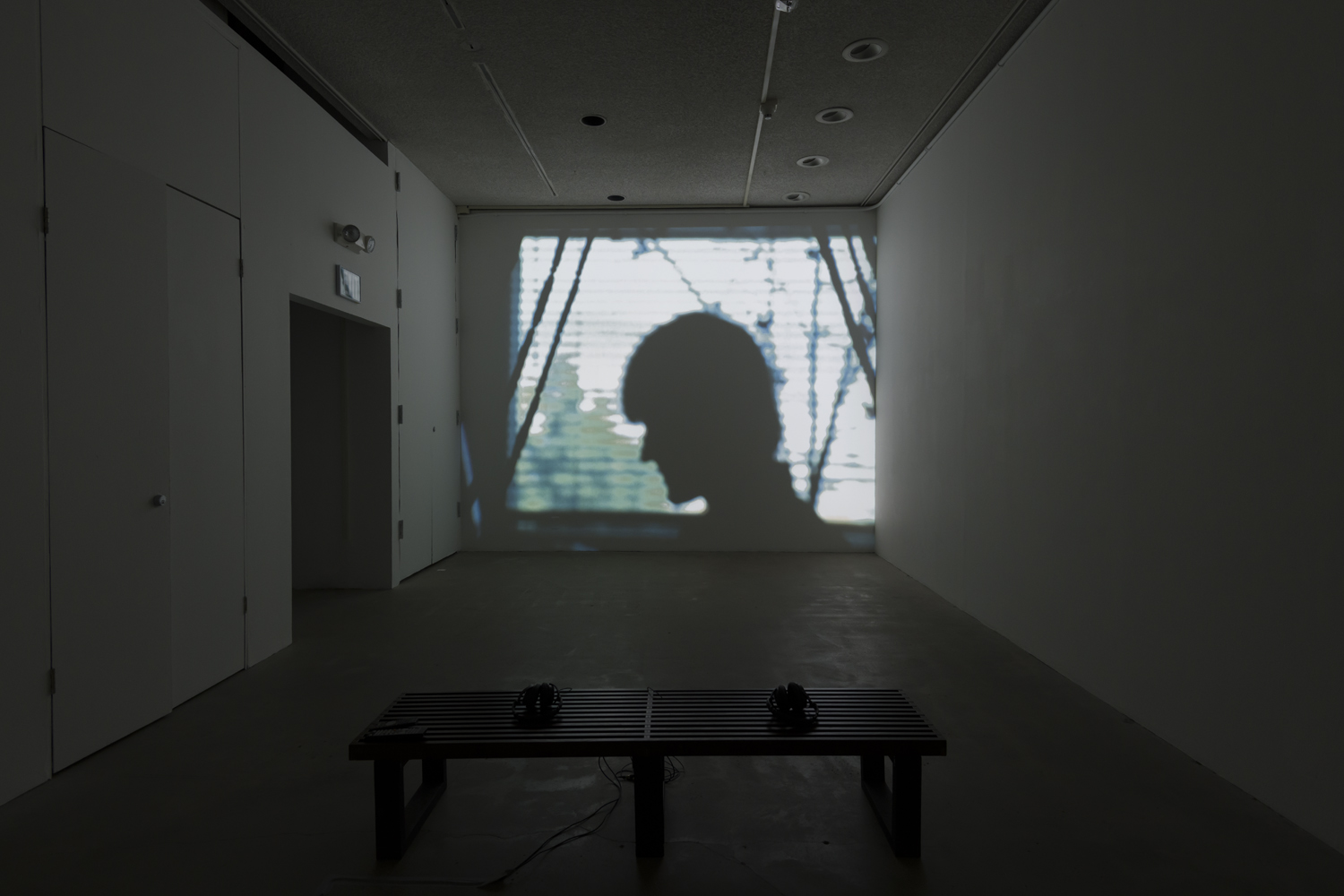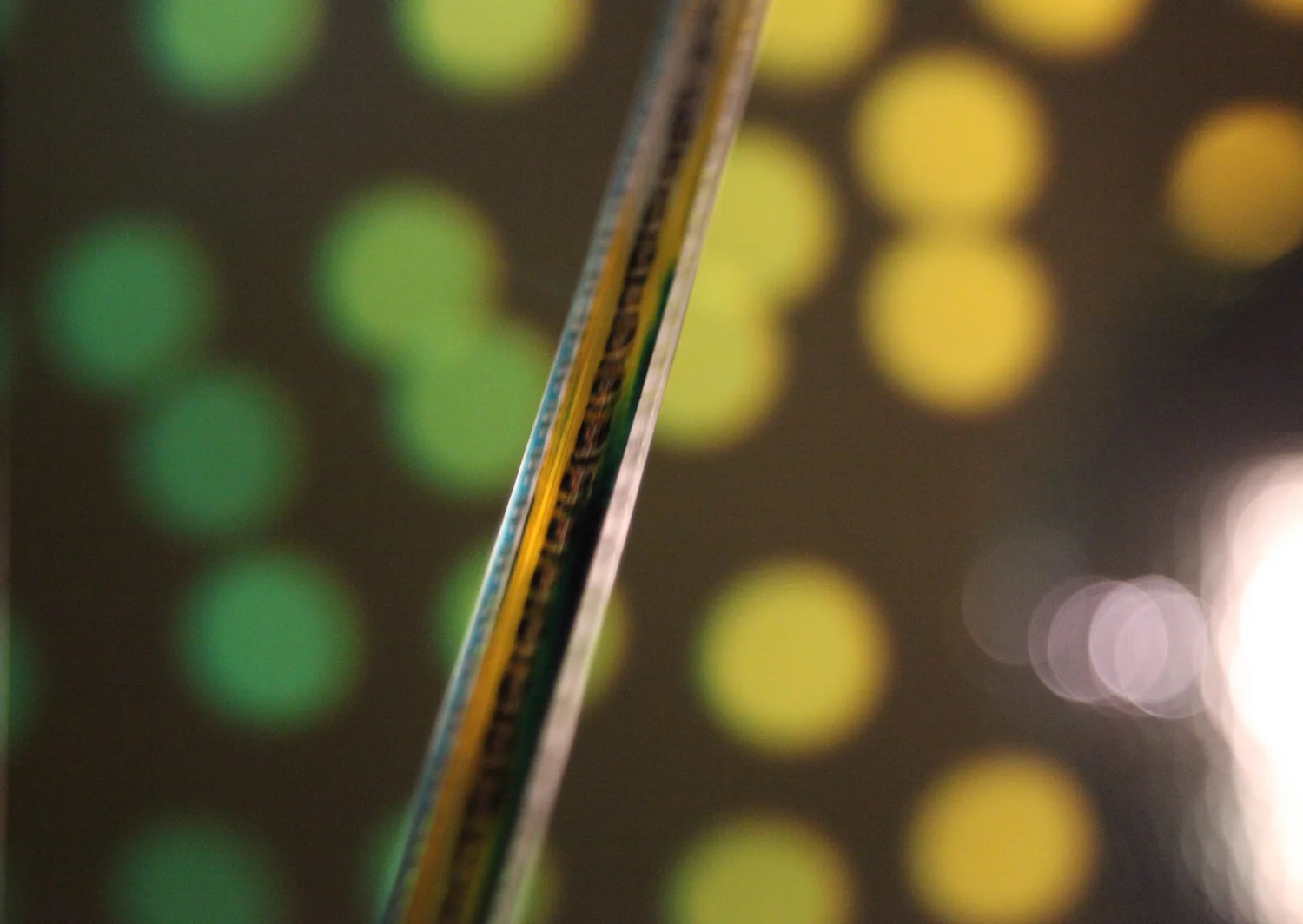(8min, 16mm, 2012)
The script for Signal attempts to organize an archive of SPAM emails collected over a three-year period into a narrative script. Untitled (Eclipse) (11min, 2012) scrolls an epically long Craigslist casual encounters text over images of the 2012 annular solar eclipse.
Text by Karthik Pandian below. Images from 2012 exhibit at ltd los angeles - Common Era: Mariah Garnett & Anton Lieberman.
Destiny, Unmanifested; Mariah Garnettʼs Signal
Mariah Garnettʼs film Signal (2012) opens with what can be best described as a series of “drifts.” The camera pans across the scarified, alien surfaces of geological formations that ring a vast body of water, occasionally resting to take in the hirsute face, dad glasses and gentle mien of a plump white middle aged man as he delivers a monologue about settling into a hotel in a foreign country. While he is indeed on foreign soil – the Paiute Indian Reservation in western Nevada – the camera movements resist his ability to settle. They waver in fixing the figure in this landscape. Unlike the iconic 19th century photographs of explorers conquering (read: expropriating) the American West under the banner of Manifest Destiny, Signal takes up the ethos of the drifter, unsettling the subject and questioning in what landscape, identity and body she belongs.
If the 20th centuryʼs answer to the hegemonic spirit of Manifest Destiny was the minimal swagger of Land Art, Signal suggests that any contemporary remapping of the West must be disoriented by the dematerialized terrain of the Internet. She recruited her three nonprofessional actors on Craigslist, feeding them lines edited from an archive of email SPAM she has collected over the last three years. Populated by an anonymous ever-shifting community of the bored, horny and enterprising, Craigslist is a canny virtual foil to the craggy, textured landscape sensitively rendered by Garnettʼs 16mm camera. As a countervailing force against the productivity of the Internet, SPAM also assumes the figure of the drifter, contaminating the flow of so many pertinent memos and missives with its wanderings. In Garnettʼs composition of the text and her direction of the actors, SPAM becomes obscure, abstract poetry uttered in disarmingly awkward and endearing spurts. Vague untethered narratives weave in and out of the soundtrack and are memorably punctuated by lines such as, “You will drill her as good as Michael Phelps swims.”
While SPAM poses little imminent risk to us in the speech we encounter it as in the film, Garnett formalizes its threat to jam our sexual networks and render us unable to differentiate between the real and fake. She does this by mobilizing SPAMʼs chief tactic of impersonation, a strategy taken up to haunting effect in the first part of Garnettʼs film Encounters I May or May Not Have Had with Peter Berlin (2010-2012). In it, Garnett impersonates the eponymous 70s gay sex icon, producing a complicated self-portrait of cross-gender identification made all the more ecstatic by the whorls of color she paints directly onto the film. The actors in Signal do not impersonate; instead, they seem to negotiate the challenge of the script with their own voices, cadences and attitudes towards performance. Signalʼs most powerful instance of impersonation comes in the sudden appearance of the explosive figure of the Fly Geyser roughly half way through the film. Drift gives way to something more violent – a hard cut to a tribe of glommed together exploding cocks stained in an astonishing range of colors by its own ejaculate. Here, the landscape impersonates man. If the threat of SPAM is predicated on the possibility that some man somewhere would sacrifice his bank details to “impress his girlfriend tonight”, the eruption of the geyser is a hallucinatory vision of that desire. The geyser finds its sexual counterpart in the formations that enfold the actors as they deliver their lines. One shot in particular slowly explores an intricately variegated surface in close-up, pulling back to reveal the yawning circumference of its flower-like form. These substitutions are so thinly veiled that their effect is at once egregious and comic and to that extent, the landscape of Signal impersonates SPAM as well.
The decomposing snake quivering in its death throes (a cruel hangover from the male enhancement pills), instructs us that the landscape in Signal is (hopefully) a monument to a regime of sexual difference that is on its last legs. Like the temporary communities that gather at Burning Man (whose empty site makes an appearance in Signal) and the anonymous author of the text featured in Untitled (Eclipse) (2012) seeking recruits for a drifting “polyamorous” poker crew, she films remind us that it is still possible to conjure beautiful, flawed, ridiculous, aggressive, utopian visions in the American West.





















































